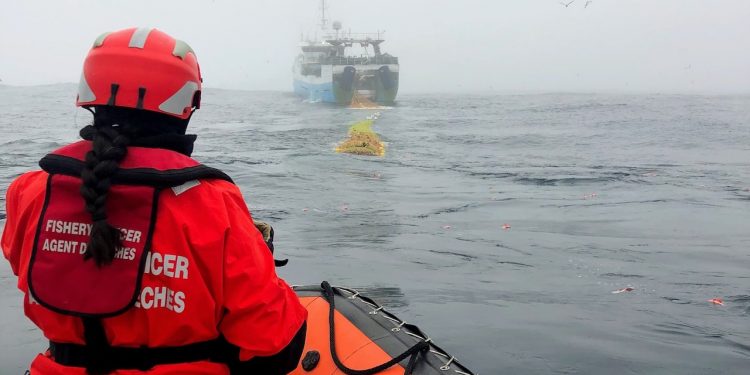Canada’s Commissioner of the Environment and Sustainable Development Jerry V. DeMarco has revealed that Fisheries and Oceans Canada was unable to collect the dependable and timely information about fish catch that it needs to sustainably manage commercial marine fisheries.
The Office of the Auditor General of Canada audited Fisheries and Oceans Canada seven years ago, and has found that it has failed to deliver on most of the corrective measures it committed to at that time.

This most recent audit concludes that while the department now has the Fishery Monitoring Policy, this was not supported by plans and resources, and it has not been implemented. Many important monitoring requirements that would improve the timeliness and dependability of fish catch data remain absent or incomplete.
‘Without dependable and timely data on fish being caught, Fisheries and Oceans Canada does not know whether commercial stocks are being overfished,’ Jerry DeMarco said.
‘The collapse of the Atlantic cod population in the 1990s – with its far‑reaching economic and social impacts – has shown that it is far more expensive and difficult to recover depleted stocks than it is to keep them healthy in the first place.’
This audit found that the department created the Fishery Monitoring Policy but had yet to implement it, while progress in modernising information management systems has been very slow. While the department has spent about $31 million to move to a single system that integrates information across regions and provides ready access to catch data, it has delivered only the initial modules of this new system while extending the system’s timeline for delivery across regions by 10 years, from 2020 to 2030.
The audit also found significant weaknesses in Fisheries and Oceans Canada’s monitoring and oversight practices. The department uses a variety of monitoring tools to get the data it needs for a fishing season, including logbooks, electronic devices, and data collected by third‑party observers.
The audit found that the department’s oversight of the information it receives had not improved since it was flagged as being poor seven years ago. Auditors stated that this means the department does not know whether the information it receives is dependable or timely or whether the information meets its monitoring requirements.









